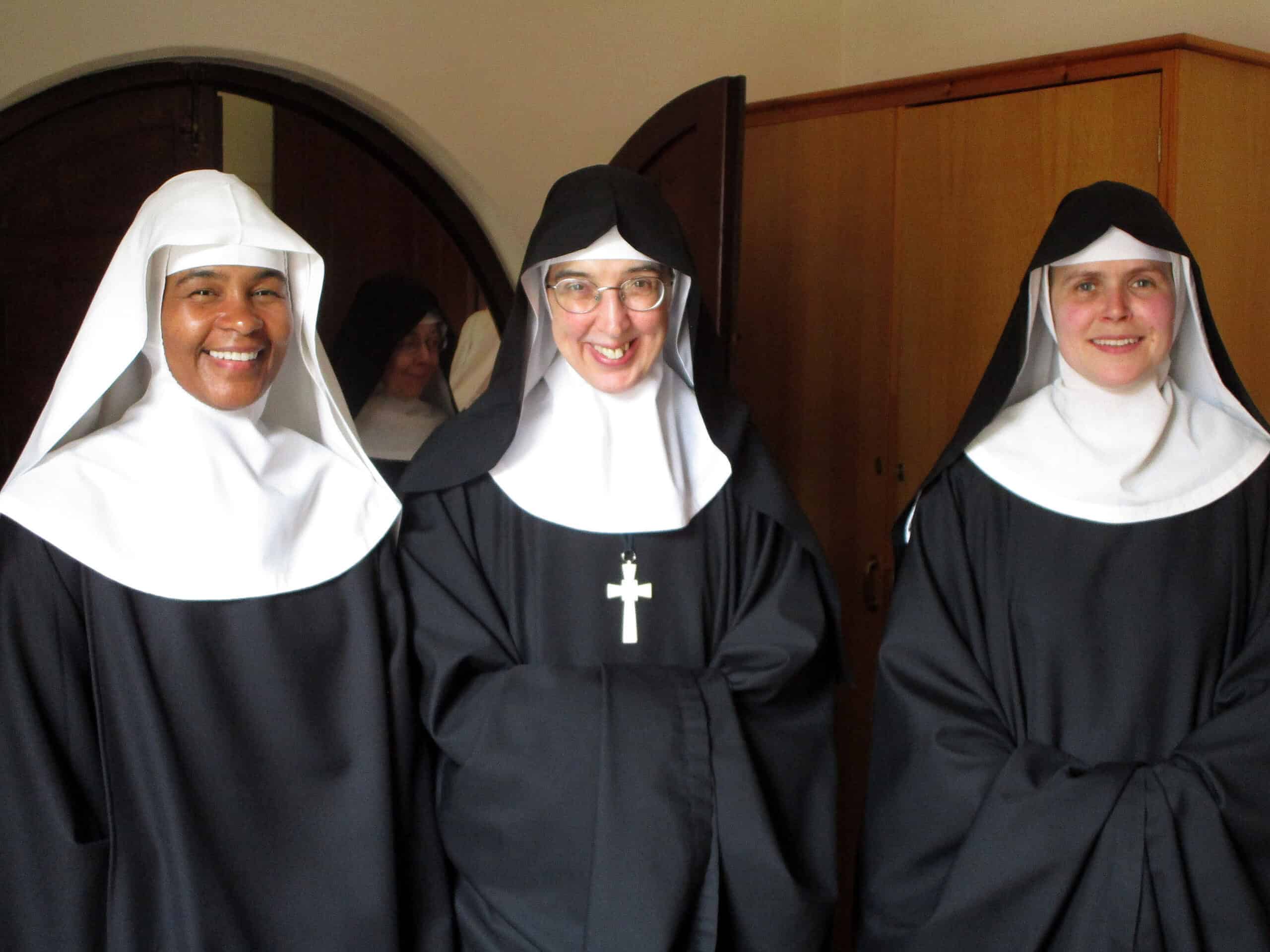Vocation
“Jesus looked on him and loved him”
Mk 10,21

Novitiate
In every age, God has raised up men and women who hear Christ’s call to discipleship, and respond in a radical way, leaving the comfort of friends and family to dedicate themselves completely to the Lord.
The radical nature of this way of life finds a sympathetic echo in the human heart, which is “restless until it rests in Thee”, as St. Augustine put it. When the Lord Jesus walked this earth, disciples gathered round him who wanted to be with him, remain with him, abide with him – forever. The monk or nun longs to follow the Lord in the same way.

What else is the cloistered life if not the continuous renewal of a “yes” that opens the doors of one’s being to welcome the Lord? It is in fact thanks to this stability and cloistered existence that you pass through this life without setting your hearts on earthly things, but striving constantly towards your goal. The nun, a pilgrim in her cloister, is always journeying towards the Lord. Each new morning she can sing with the Psalmist “O God, you are my God whom I seek; and my soul thirsts… Thus have I gazed towards you in the sanctuary” (Ps 63:2-3). And with the Bride of the Canticle she can say: I will rise then and go about the city; in the streets and crossings I will seek him whom my heart loves” (Song 3:2).
In the monastery everything is directed to seeking the Face of Christ, everything is reduced to the essential, because only what brings one close to him is important. Therefore, how precious is your vocation of special consecration! It is truly a gift that is centred in the mystery of ecclesial communion, accompanying the apostolic mission of those who labour in proclaiming the Gospel.
(Pope St John Paul II)
What is a vocation?
One way to understand this is to look at the way Jesus calls in the Gospel. It is clear from the Gospel that Jesus called disciples to him in two different ways: some follow Our Lord in a general way; some receive a more specific calling from Christ. On the one hand there were many people who came to Jesus to listen to his preaching, to be strengthened by his teaching, to receive healing and an orientation for their lives. And they receive healing, encouragement and direction from him. They come to him and then they leave him to go back to their own home.
On the other hand, there was a smaller group of men and women who followed him more closely. Among this smaller group we have those called disciples, those men and women who were at the full disposal of Jesus-like Mary Magdalene, Martha, and Lazarus and others. And there were of course the Twelve: At the call of Jesus, “Come!” his “Come and see!” his “Come follow me!” the apostles were henceforth always with him. They share their lives completely with him.
If they are sent out, they are sent only by the Lord’s commission and for his purpose; and they return to him as to the place where they belong. Moreover, it was not their choice to follow Jesus, it was his choice. The vocation to the religious life is, therefore, a special gift, a personal gift, a privileged gift granted by God, not to the majority, but to the minority. No one can bestow this privilege on himself, as Jesus said: You have not chosen Me, but I have chosen you (Jn 15:16).
“In the first place, a vocation, or a call to the Priesthood or the Religious Life, in contradistinction to the general invitation, held out to all men, to a life of perfection even in the world, is a free gift of God bestowed on those whom He selects: “You have not chosen Me,” he said to His Disciples, “but I have chosen you,” and the Evangelist tells us that “Christ called unto Him whom He willed.” Often that invitation is extended to those whom we would least expect. Matthew, surrounded by his ill-gotten gains; Saul, “breathing out threats and slaughter against the Christians,” each heard that summons, for a sinful life in the past, St. Thomas teaches, is no impediment to a vocation.”
From Vocation by Fr William Doyle, S.J. (died 1917)



